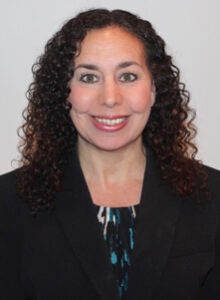Recently, there has been great emphasis on enhancing organizational co-occurring competency and for good reason. Climbing overdose and suicide rates, with bi-directional contribution from mental health (MH) and substance use disorders (SUD), reflect our need to do better serving those with multiple complexities. This push is not new, and this fact ought to have us take pause and reflect on why repeated attempts at arriving at a co-occurring competent system of care – prevention through recovery – have never fully succeeded and explore potential models for achieving this long-sought success.

Data suggests that 90% of people with SUD never receive SUD treatment and only 42% complete SUD treatment, meaning that only 4.2% of those with a SUD complete treatment. Approximately 50% of those with a MH or SU disorder—19.4 million Americans– meet criteria for co-occurring disorders. Substance use is a known contributor to suicide, with a recent multiyear systemic review of completed suicides in Westchester County NY indicating that more than 80% of individuals who completed suicide were under the influence of substances at the time of their suicide., those with co-occurring mental health and substance use concerns are more likely to experience trauma (e.g., sexual assault, car accident, robbery, etc.), a worse course of illness, and more likely to drop out or “fail out” of treatment. Despite these and other concerning findings, only between 9 and 18% percent of behavioral health providers have the capacity to treat those with co-occurring disorders.
There are many challenges in achieving systemic co-occurring competency. Foremost are siloed systems of research, education and training, and regulatory institutions and structures. Maintaining these silos has hindered progress towards integration, making it difficult to develop and sustain prevention programming and implement evidence-based treatment modalities for co-occurring disorders with fidelity. This leaves providers struggling to on one hand be proactive and on the other address the wide array of presenting concerns in a way that best meets the needs of the individual. Siloed educational (and licensure) systems leave providers often trained (and licensed) in either mental health OR substance use disorders, ill-prepared to provide integrated prevention and treatment. From community coalitions to intake coordinators to case managers to providers to the agencies themselves, these deficits often result in individuals with co-occurring disorders being referred to others who are perceived as possessing the requisite skill and experience. This fails to recognize two primary issues: 1) most providers (in mental health or substance use) also lack skill and confidence around addressing co-occurring disorders; and 2) most individuals with co-occurring disorders are either unaware that their mental health or substance use is problematic or unwilling to address them, making it unlikely that they will follow recommendations even in the correct environment. When organizations seek to address these provider deficits with targeted trainings, they often find it challenging to truly achieve co-occurring competency due to an inability to support supervision and fidelity assurances, as well as the high staff turnover rates experienced by many agencies. Separate regulatory bodies reinforce these siloed systems through often incompatible regulations and billing structures that further hinder successful integration efforts and fail to recognize the reality that the care of a meaningful percentage of those treated in both systems would benefit significantly from integrated, co-occurring competent systems of care.
Together, these systems unintentionally conspire to create care that is fragmented, resulting in individuals rarely receiving the gold standard of integrated care with a single clinician and psychiatric provider; instead, people often receive either consecutive (this, then that) or concurrent (this and that) treatment requiring those with more severe and complex presentations, who likely already struggle to make it to a single provider, to attend multiple appointments with multiple providers. This has a personal and financial cost. However, the news here is not entirely grim. There are several lessons learned from recent efforts in New York State (and elsewhere) demonstrating success with a number of opportunities available to continue to advance this work. However, it will require purposeful effort and sustained support from the system and requisite stakeholders. We summarize key strategies learned from these efforts in Westchester County over the last several years that have experienced some success.
Our first step was to assess the willingness and commitment of regional stakeholders to take a “system of care” approach to the delivery of co-occurring competent services that included the opportunity for shared leadership and meaningful partnerships, and exploration of effective evidence-based and data-driven practices. With the framework of the Regional Planning Consortium (RPC), focusing on transitions and integration within the Medicaid system, the Mid-Hudson Region chose to look at person-centered models of care, recognizing the potential for building a complexity-capable, integrated behavioral healthcare system. In November 2017, a two-day leadership forum was held entitled: “Creating a Welcoming and Integrated, Trauma-Informed System for Addressing Those with Co-occurring Disorders,” led by systems change experts Dr. Ken Minkoff and Chris Cline. All 7 counties of the Mid-Hudson RPC sent teams comprised of county mental health directors, providers, hospitals, agencies, community organizations, family members, and peers. Also in attendance were representatives from the NYS Office of Mental Health and the Office of Addiction Services and Supports. Drs. Minkoff and Cline challenged the notion that individuals presenting with multiple complexities should be referred to “expert” treatment providers, effectively arguing that providers should adopt a “No Wrong Door” experience of care, meeting people where they are and welcoming those with complexities into treatment, meeting their needs rather than referring them out.
An outcome of the 2017 Forum was the identification of highly motivated champions who returned to their respective counties to form the Co-Occurring System of Care Committees (COSOCC). The Westchester County effort, led by the Westchester County Department of Community Mental Health (DCMH), brought together stakeholders from prevention, treatment, housing, care management, criminal justice, hospitals, among others. Critical to success was to evaluate how stakeholders could advance integration in their respective organizations and institutions. The Westchester COSOCC effectively helped the local government unit and participating organizations identify and share needs and resources to mutually support one another in advancing co-occurring competent systems. Participating entities drafted and voluntarily adopted a charter that explicitly states that each organization will work to advance a co-occurring system of care. Additionally, participating organizations support each other in advancing co-occurring competency by sharing knowledge and expertise, with a focus on licensing/regulatory, quality improvement, and prevention/community engagement. Participating organizations also utilize a tool–the Compass-EZ– to evaluate their level of co-occurring competency and establish goals, including promoting a welcoming atmosphere from the time an individual makes initial contact through assessment, planning, treatment, and recovery supports. Further, organizations revised promotional and educational materials, including websites and brochures, to explicitly state that people with complex needs are welcomed into treatment, and that the organizations themselves are committed to advancing co-occurring competent care.
As Westchester COSOCC members began goal-setting and prioritizing next steps, several provided opportunities for staff to be trained in foundational approaches to co-occurring competent care. Funding provided by The Harris Project Inc. supported countywide workshops and the opportunity to have Dr. Minkoff work with agencies and staff to address specific topics of interest. The County began working strategically with the New York State Psychiatric Institute’s Center for Practice Innovations (CPI) to enhance offerings. CPI helped develop a set of “core competencies” and continues to bring a “stages of change” lens to the effort. Westchester Jewish Community Services (WJCS) partnered with the Center on Alcoholism and Substance Abuse to implement trainings across its clinics, seeking to challenge notions about the success of consecutive and concurrent models of co-occurring treatment while advocating for a “No Wrong Door” approach. Universally, efforts have been made to address staff concerns, myth-bust around certain pre-conceived ideas, and provide follow-up training, consultation, and supervision to build comfort and ensure successful implementation. CPI also worked with Westchester DCMH to develop a countywide co-occurring system of care orientation and learning collaborative.
In the spring of 2021, The Harris Project Inc. received funding to support a pilot of Encompass – a modular evidence-based treatment protocol for those 12-29 with co-occurring disorders. Encompass uses cognitive behavioral therapy and motivational enhancement therapy to facilitate acquisition of new skills and coping strategies, reducing harmful substance use and improving mental health with motivational incentives reinforcing changes in substance use and increasing engagement in non-drug pro-social activities. Treatment consists of approximately 17 weekly outpatient individual sessions and may include a family component to ensure that parents/caregivers have the tools needed to support their teen/young adult during all stages of recovery. Several youth-serving agencies joined the pilot, now in its third iteration, with more than 50 clinicians from six agencies participating. WJCS has been a leader with more than a third of its clinicians either fully certified or in the process of certification in Encompass, and its own clinical consultation meetings to support fidelity. This effort has led to a larger commitment to building a wraparound model of care for teens and young adults with co-occurring disorders. This includes a wraparound coordinator, parent/guardian/loved one support, and a bolstering of CODA (Co-Occurring Disorders Awareness) prevention education.
In furtherance of this commitment, WJCS has taken the lead in supporting staff delivering CRAFT (Community Reinforcement and Family Training) with fidelity. Since those with co-occurring disorders often have greater challenges, including a lack of social support, providing a modality like CRAFT can support parents/guardians/loved ones is important. CRAFT helps concerned significant others to effectively support their loved ones entering and remaining engaged in treatment, undoing traditional harmful confrontational approaches popularized by television. Training staff in CRAFT is necessary because staff, like our clients and their families, are exposed to those same harmful confrontational approaches, and staff are seldom trained in systems interventions like CRAFT.
Another “missing piece” has been the ability to help youth navigate to positive, prosocial, non-substance related activities. Most recently, we launched a curated platform in Westchester County that relies on youth leaders who work with an adult coordinator to develop in-person and online activities and programs. The platform, named “Inclure” (Encompass in French), aligns with a key element of Encompass which asks clients to complete two prosocial non-substance involved activities each week. It also draws youth who have chosen to be substance free, as well as allies of substance free lifestyles.
Another lesson learned throughout this journey is the need to enhance the motivation of individuals to make changes in problematic substance use given that a major barrier to substance-involved individuals seeking treatment is lack of awareness of a problem and that many seeking treatment for SUD often lack the desire to change their substance use. Although many staff are trained in Motivational Interviewing (MI), and many believe they utilize MI, arguably few practice it with sufficient fidelity. In recognition of this, with support from Opioid Settlement Funds provided by DCMH to WJCS, WJCS is providing staff with significant training in the use of MI. That training will use a supported implementation model like that utilized in the Encompass pilot, which includes training plus ongoing supervision and implementation consultation. MI advances co-occurring competency and better prepares our system of care to work with individuals who do not always come into care motivated to make needed changes. Utilizing MI enables individuals to find their intrinsic motivations for change and make the most of other evidence-based treatments, including evidence-based treatments for co-occurring disorders.
Another lesson is that our systems must inoculate themselves against staff turnover that is largely attributable to wages. Without significant advances in behavioral health care rate reform and meaningful enforcement of behavioral health care reimbursement parity, there must be creative solutions. While there are likely several approaches to addressing this need, one approach taken by WJCS is to invest in training of supervisors in co-occurring competent supervision through approaches like Motivational Interviewing Assessment: Supervisory Tools for Enhancing Proficiency (MIA: STEP) which offers a mechanism for organizations to train supervisors in supporting their supervisees in the use of MI. Such promising practices support organizations in retaining training gains by investing in supervisors to support staff to effectively work with individuals with multiple complexities.
Finally, it is critical to remember that the development of co-occurring competency is not simply an initiative, it is a transformation. As such, support must be provided through strategic and integrated funding and by investing in research and evaluation of promising and evidence-based practices.
William A. Mullane, PhD, is a clinical psychologist and is the Director of Innovation, Integration, and Community Partnership at Westchester Jewish Community Services. He also serves as a Co-Chair for the Westchester County Co-Occurring System of Care Committee as well as a Co-Chair for Coordinated Behavioral Health Services’ (CBHS) Co-Occurring Disorders Taskforce.
Stephanie Marquesano, JD, is the founder and president of The Harris Project, Inc., a 501(c)(3) non-profit organization founded after the accidental overdose death of her 19-year-old son, Harris, who also faced challenges with co-occurring disorders. The Harris Project Inc. is an organization dedicated to the prevention of co-occurring disorders (COD) through its CODA (Co-Occurring Disorders Awareness) model, and the development and implementation of best treatment practices (including the building of a co-occurring system of care) to meet the complex needs of the individual. She serves as a member of the NYS Opioid Settlement Fund Advisory Board, co-chairs the Westchester County Co-Occurring System of Care Committee, and serves on several regional and statewide committees bringing her perspective to this critical topic.
Michael Orth, MSW, is the Commissioner of the Westchester County Department of Community Mental Health, a branch of county government responsible for planning, oversight, education, and coordination of services and supports for individuals, and their families, with mental illness, developmental/intellectual disabilities and substance use challenges. He has served the Department in various capacities for more than 30 years.







